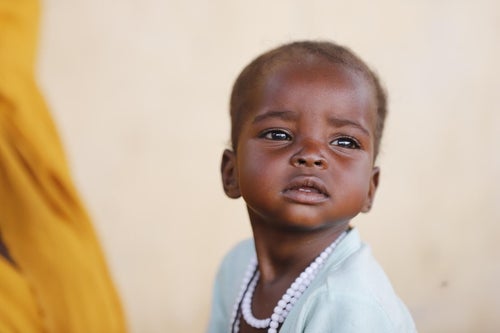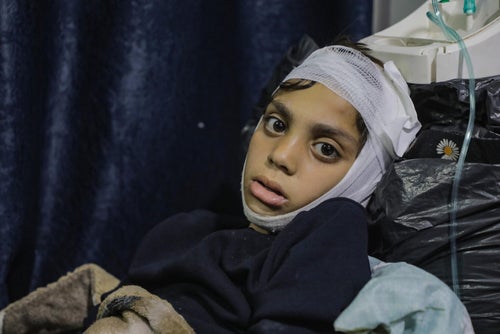In recent months, a growing number of Afghan returnees have been crossing back into Afghanistan from Iran and Pakistan, countries that once offered refuge but are now tightening up on undocumented Afghans. Driven by forced deportations and regional political tensions and conflict, many families are returning to a country marked by decades of conflict, deep poverty, climate shocks, and serious child protection risks, particularly for girls.
In June alone, more than 250,000 Afghans crossed the border from Iran through the Islam Qala and Milak crossings. At least a quarter were children, with around 5,000 unaccompanied. So far this year, the United Nations estimates that over 700,000 Afghans have returned, 99 per cent without documentation and 70 per cent forcibly deported.
Back in October 2023, Pakistan introduced a repatriation plan requiring undocumented foreigners, including Afghans, to return to their countries. In 2025, the plan was enforced with more than 150,000 Afghans, including children, returning since January.
While both Iran and Pakistan have steadily tightened restrictions on undocumented migrants, the situation has rapidly escalated. Iran’s border reception centres are overwhelmed and are placing growing pressure on local communities. The rise in returnees is being driven by growing insecurity, regional tensions and recent bombings, placing immense strain on Afghanistan, where an already dire situation has left over 22.9 million people in need of humanitarian support.
Among the returnees are children who’ve only ever known life in Iran or Pakistan. Now, they are being forced to leave behind their homes, friends, and familiar surroundings and step into a future filled with uncertainty, especially girls whose rights have been heavily restricted in Afghanistan.
Starting from nothing in a country they left behind
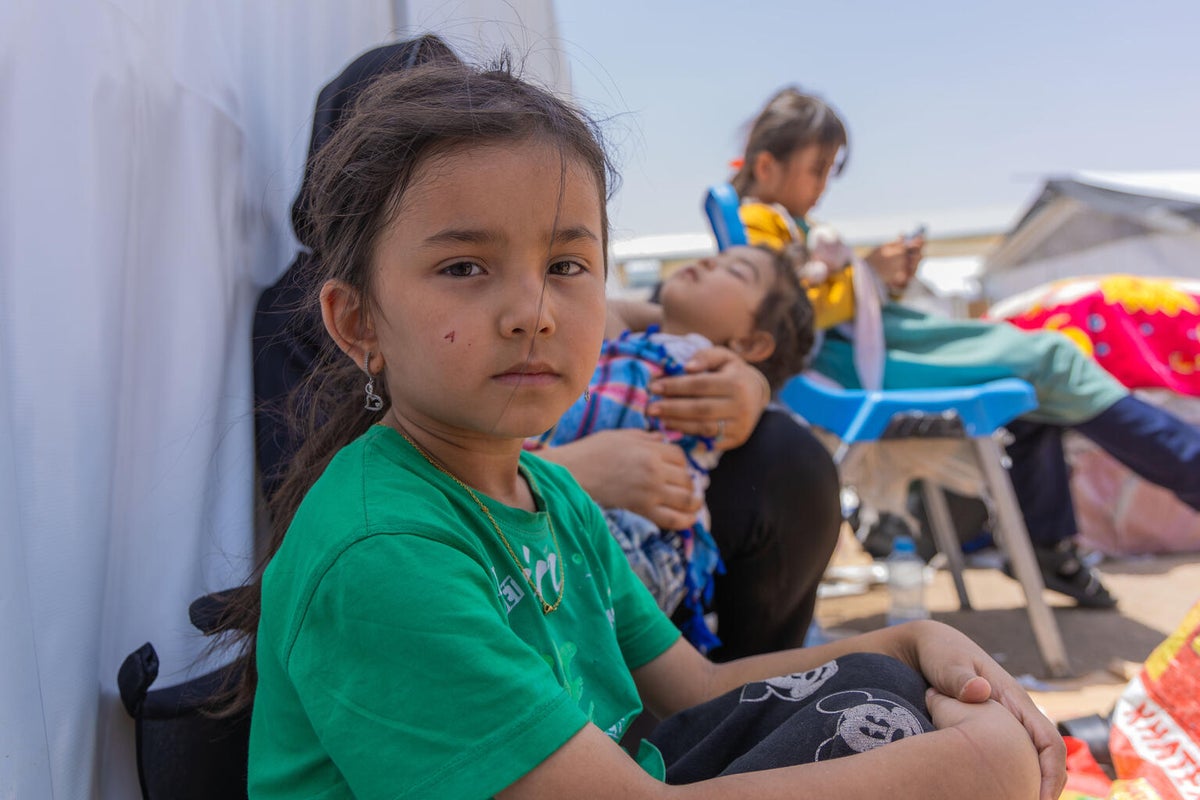
Six-year-old Anisa sits with her family at the border crossing, newly returned to Afghanistan after living in Iran for the past four years. In Iran, Anisa spent her days playing with friends while her father worked as a labourer to support his family. Though they had the basics – food and a place to live – the family’s undocumented status meant they lived with constant uncertainty and limited access to essential services.
The journey back to Afghanistan was long and exhausting, especially for Anisa and her siblings, who struggled through the heat and fatigue. Since arriving, the family has had no shelter or access to medical care, and they have no place to go.
"What we need now is shelter – just some shade and a place to plan our future."
The small cash assistance they received at the border was a start, but not nearly enough. With no fixed destination and sleeping in the open, the family’s most urgent needs are clear: shelter, clean water, food, and a safe space for the children to be children again.
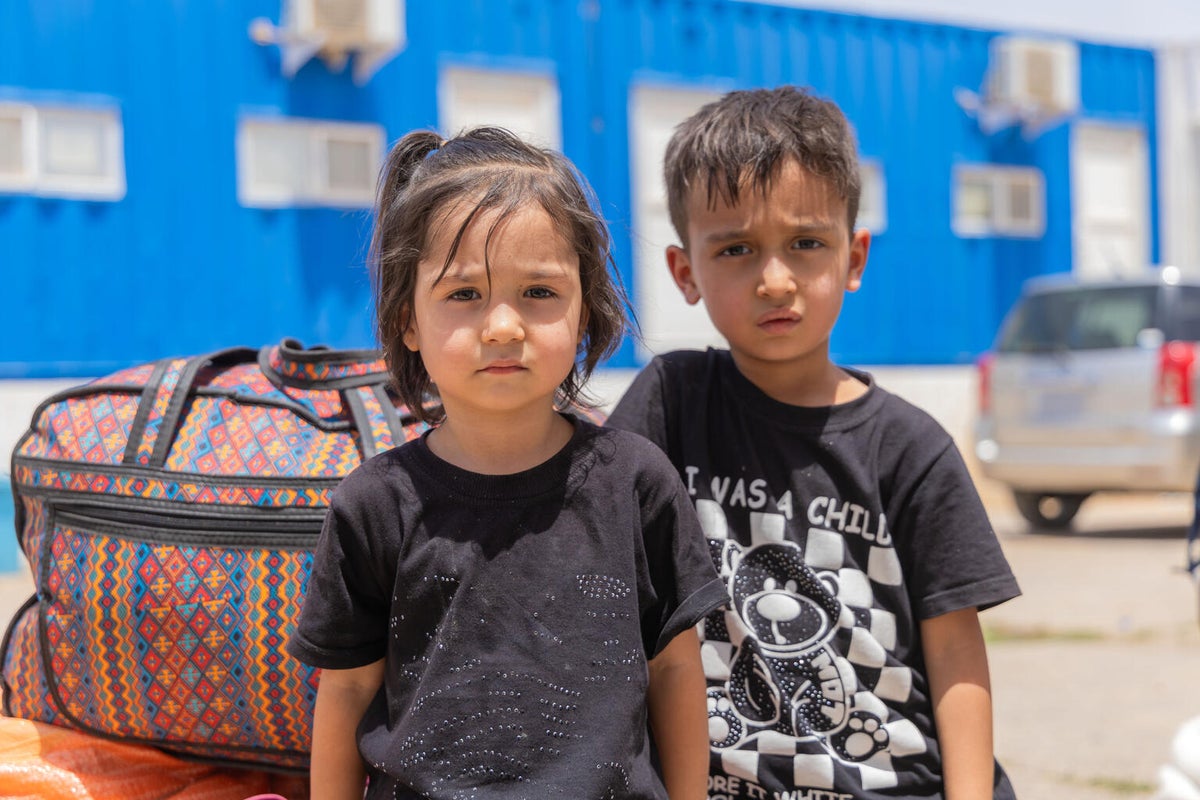
Five-year-old Amir Ali and three-year-old Baran sit next to their family’s few belongings at the Iran-Afghanistan border. For the past seven years, their family had been living in Iran after leaving Afghanistan in search of safety and work. The journey back took two long days, made even harder by intense heat and exhaustion, with nowhere to sleep safely along the way.
"We don’t know where we’ll sleep tonight. We need shelter, food, water, and medical help."
Since returning, they’ve seen a doctor and spent time in a UNICEF-supported child-friendly space, but like many families returning to Afghanistan, their future remains unclear.
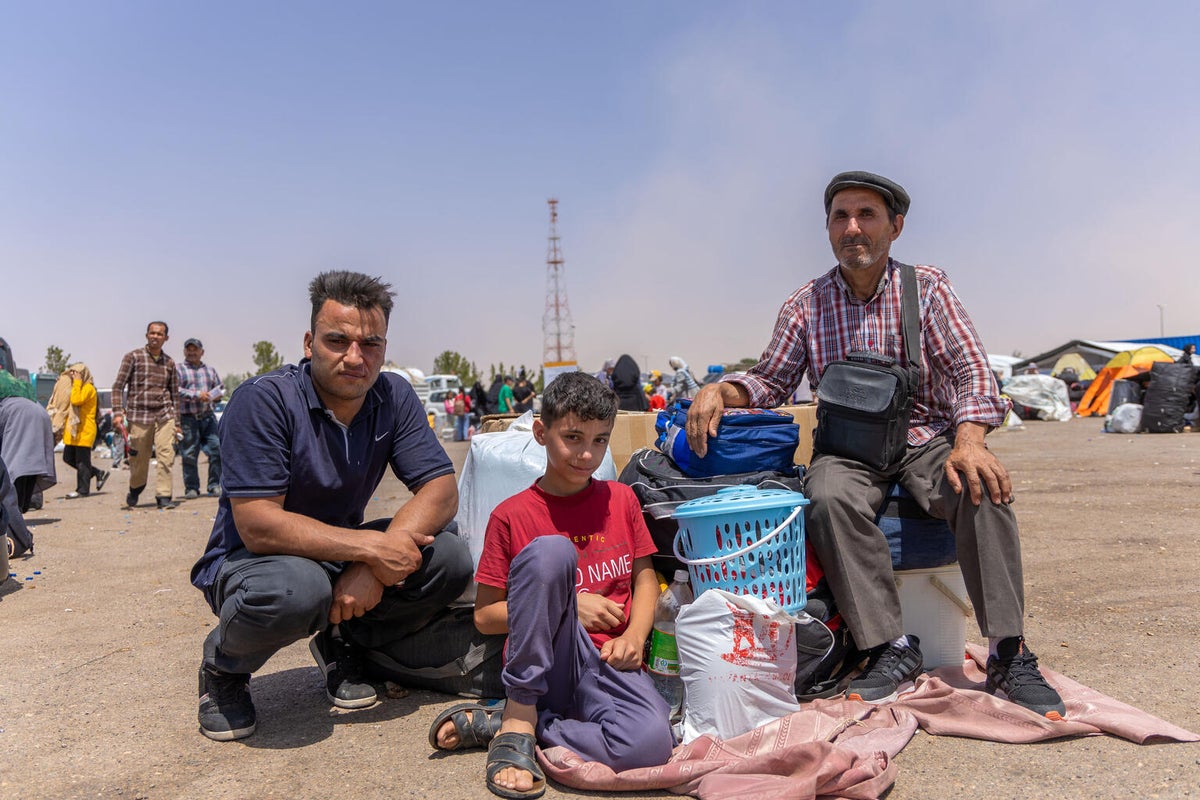
At the border crossing between Iran and Afghanistan, thirteen-year-old Ibrahim sits beside his father and one of his six siblings. For the past three years, the family had been living in Iran after leaving Afghanistan due to economic hardship.
Their undocumented status meant Ibrahim ad his brothers and sisters weren’t allowed to attend school or university, limiting their hopes for the future.
"What we need most now is shelter, a safe place to live and rest,” he says. “We sold our house when we left Afghanistan, and now we have nothing. My children need access to school, and I need a job to build a future."
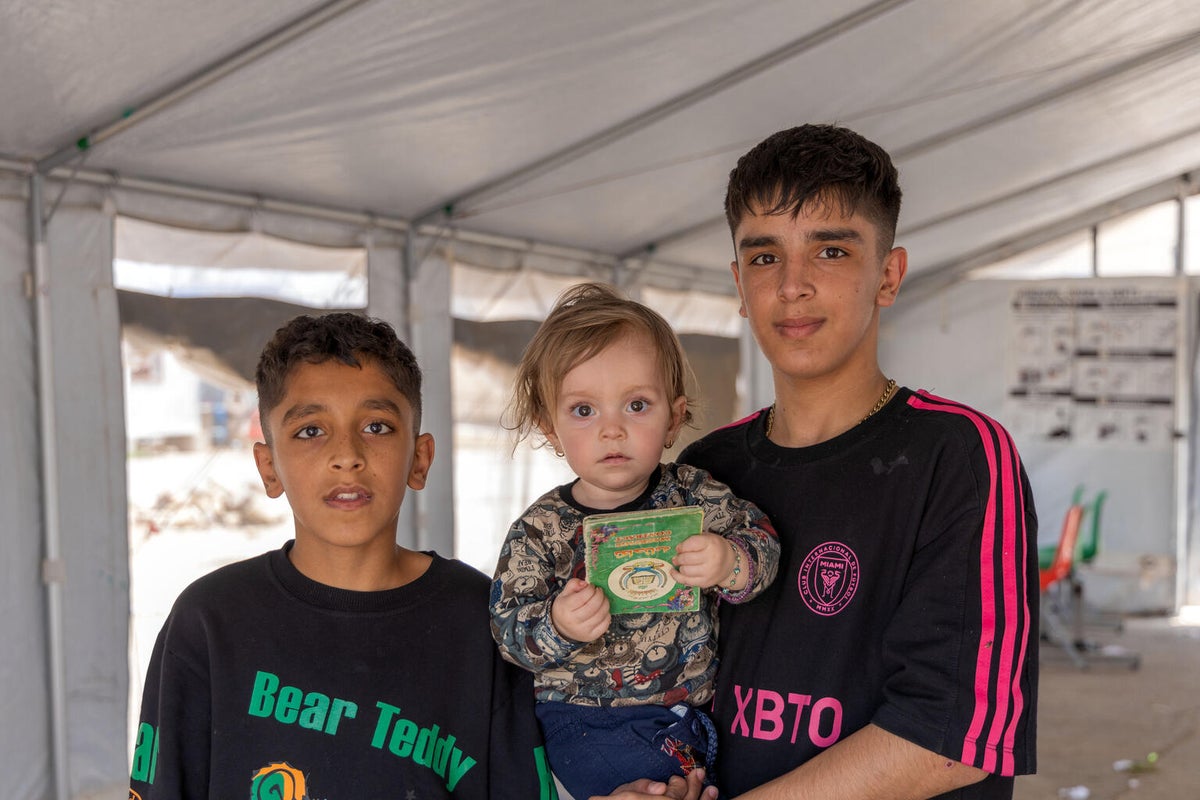
Brothers Amid, 17, and Armin, 13, hold their one-year-old sister Mehrsa close as they return to Afghanistan from Iran, where their father had been working in construction. Their mother shares that the return has been emotionally difficult for the family, but they’re doing their best to adjust and rebuild.
“I miss my friends in Iran, but I’m happy to be back in Afghanistan where I can speak my language, play with other Afghan boys, and hopefully go to school again,” says Amid.
Children reunited with their family at the border
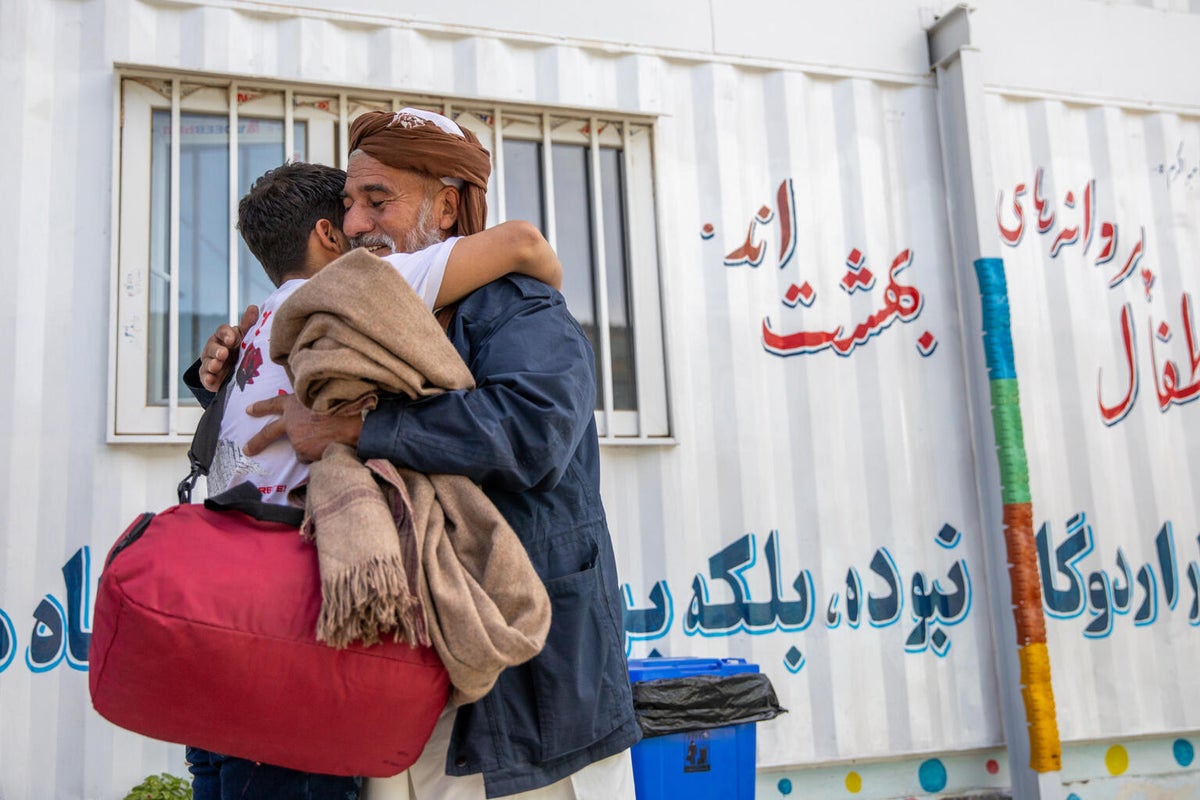
Seventeen-year-old Bashir wraps his arms around his grandfather in an emotional reunion after eight years apart. They were reunited at a UNICEF-supported transit centre in western Afghanistan, a temporary haven for children like Bashir, who have returned to Afghanistan alone, separated from their families and caregivers.
While at the 170-bed transit centre, children are given a chance to rest and recover. They can take a shower, change into clean clothes, eat a hot meal, and play games or sports with other children. Psychosocial support is also available to help them navigate the journey they’re enduring, as case workers try to trace and reunify them with their families and caregivers. This process can take between 12 and 72 hours.
By mid-April 2025, UNICEF had helped reunite more than 1,000 unaccompanied and separated children across Afghanistan.
How UNICEF is helping
As children and families arrive at the border in extremely vulnerable conditions, UNICEF is there, working alongside UN agencies and local partners to deliver critical services and supplies. Our teams are delivering lifesaving vaccinations, providing clean water and sanitation facilities, and creating safe, child‑friendly spaces where children can play and learn.
From child protection and psychosocial support to health, nutrition and education services, UNICEF is scaling up critical programs to help families recover and rebuild, while working to reunite unaccompanied or separated children with their loved ones.
Yet, it’s not enough. We need your help to be there for children who are facing uncertain futures.
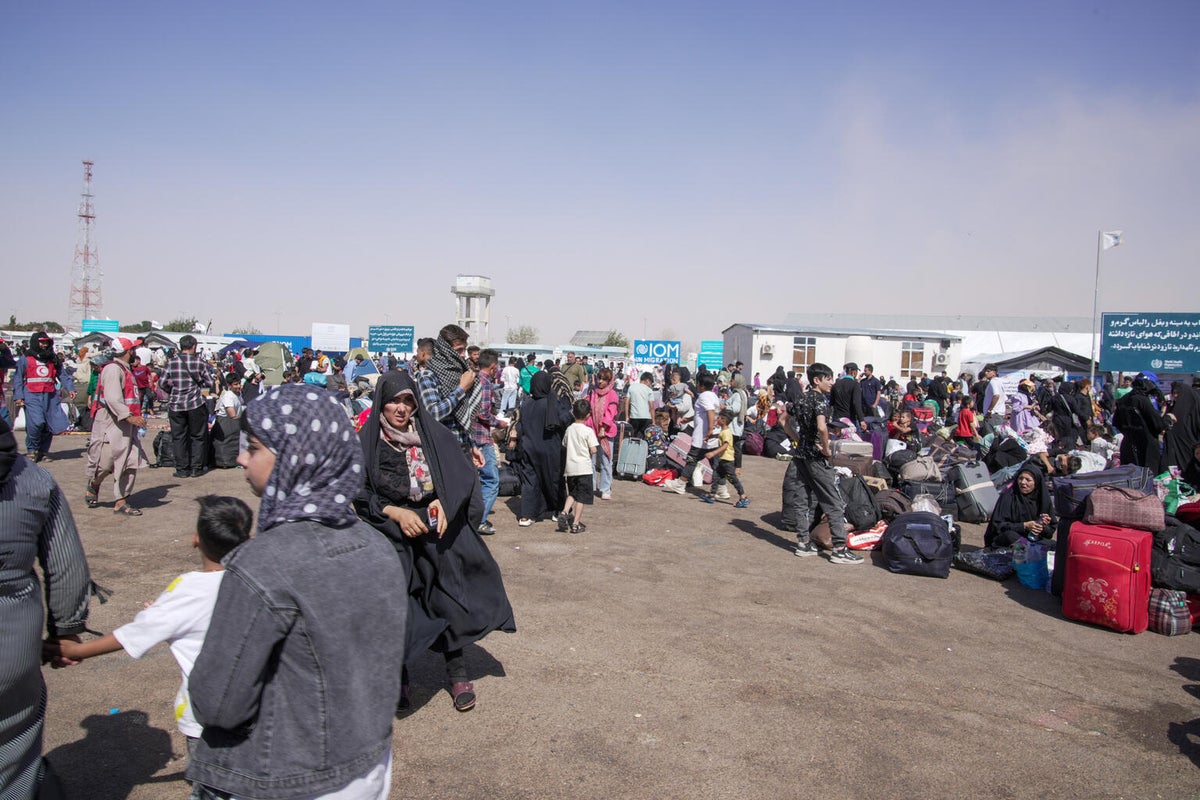
Children in Emergencies
UNICEF is providing urgent assistance to children. But we can’t do it alone. We need your help today.
Related articles
Stay up-to-date on UNICEF's work in Australia and around the world





